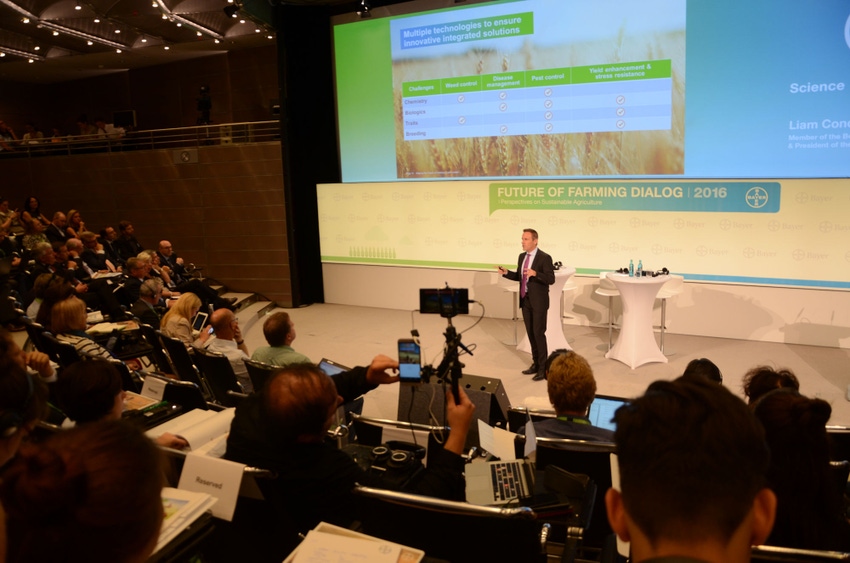September 13, 2016

During last week's global media conference for Bayer – called the Future of Farming Dialog – one issue came that is of interest to Farm Industry News – digital farming. It's a phrase being heard more in agriculture, and at Bayer it has some significance as the company makes investments in this area.
The company has set up a website – digitalfarming.bayer.com – where the company talks about tools and expert systems. From taking a picture that can be interpreted by the system for disease management to getting advice on crop protection approaches, digital farming could help boost farmer return on investment.
Last week we touched on one area that will get more attention from Bayer going forward, and that’s the idea of selling an outcome rather than selling a bundle of products. This is still in the very early development stages, but Liam Condon, who heads the Bayer Crop Science group and is a member of the Board of Management at the company, shared his views on digital farming.
"I'm a big believer in the potential that digital holds," Condon says. "And that's from two angles. Inside the company with computational life science we will be able to connect all the data that we have and be able to interpret it more systematically."
That's a big deal, he notes that currently the company has potential mountains of data in different places and they're not being pulled together for analysis. "There's an awful lot of data in different systems that’s simply not at all connected," Condon says. "We have tons of jewels lying around that we don't know about because the data is not collected."
As the company works with that data and brings in scientists to analyze the jewels, there's potential for higher productivity and better results in research and development for the future. And for your farm, that could end with what would become an outcome-based model.
"Instead of selling inputs, we could sell a weed free field, or a yield guarantee," Condon postulates. "If the outcome didn't happen, we would have to compensate the farmer for that. That's potentially a new business model that doesn't exist today, and we're nowhere near it now, but it's not like this is decades away."
He notes that in just a few years that could be the market approach if data can be managed to assure positive outcomes for farmer and company. The key is to first collect the data and work through the algorithms to see if the data provides the information needed. "I'm personally completely convinced this will have a really significant impact on the future of agriculture without us knowing exactly how today," Condon adds. "Looking at every other industry in the world, it's hard to imagine it won't have the same impact in ag particularly due to the high penetration of tech [in ag]."
That guarantee
Condon notes that guaranteeing an outcome and providing some kind of 'insurance' to the farmer is one potential approach of all that data analysis, but not a promise that Bayer will do that. However, in looking at that approach, he adds: "We're very far away from [that approach] but this is one potential outcome, but we don't know if we could ever get there. Ag is so volatile, so many different factors. The question is if you'd ever have enough data to offer a guarantee."
He notes that the idea is hypothetical but that eventually the company might get there – as the ultimate model. "It kind of helps to see what it could be, to help channel our thinking when developing our tests to see how far we could go. So the weed-free field is much closer than that model."
Turning data into final products offers an interesting way to farm for the future. Bayer sees value in the idea and continues to invest.
About the Author(s)
You May Also Like






